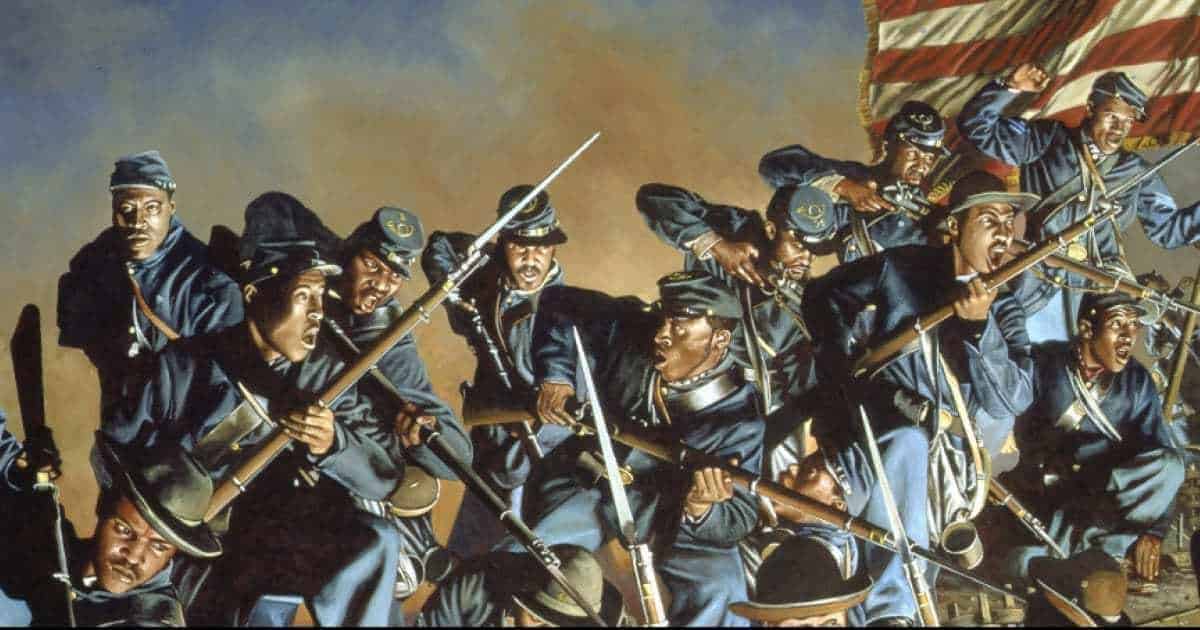179,000 black men served in the Union Army during the U.S. Civil War while a further 19,000 served in the U.S. Navy. As historian Ira Berlin and colleagues put it, black men found themselves once again “enmeshed in another white-dominated hierarchy which also assumed their inferiority.” The discrimination toward the black soldier which resulted from this assumption meant that for a large part of the war these men had to fight two wars, “one against Southern secession, the other against Northern discrimination.”
Important Acts and Milestones

Due to a Federal law passed in 1792, it was illegal for black men to bear arms in the U.S. Army. Thus, black men who wished to serve in the Union Army following the outbreak of the U.S. Civil War in 1861 were turned away. This remained the case until the passage of the Militia Act of July 17, 1862. The previous year, in August 1861, Congress had outlined official policy toward fugitive slaves, by passing the First Confiscation Act, which stated, “that any master using a slave or permitting a slave to be used in aid of the Confederate war effort shall forfeit all right to that slave.”
Although the First Confiscation Act specifically applied only to those slaves in Confederate employ, many field officers applied its terms when they encountered fugitive slaves in large numbers, putting them to work as military labourers for the Union side, regardless if they had never before aided the Confederate war effort. Two Union Generals who challenged the Union’s exclusionist policy more directly in the early stages of the war were General John W. Phelps, a Vermont abolitionist serving in the Department of the Gulf under General Butler, and General David Hunter, commander of Union forces along the coast of South Carolina, Georgia and Florida.

